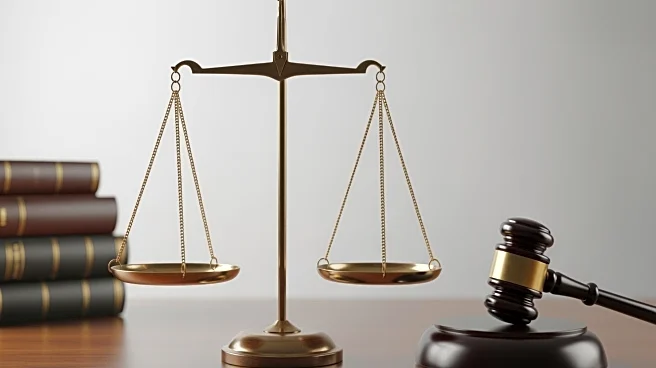What's Happening?
Threats against judges and their families have been rising, with federal judges targeted 457 times in 2023, up from 300 in 2022 and 179 in 2019. These threats are serious enough to warrant investigation.
Judges involved in cases related to the Trump administration have faced particularly severe attacks, often fueled by misinformation. Chief Justice Nathan L. Hecht of the Texas Supreme Court highlighted the impact of misinformation in a polarized political environment, which undermines public confidence in the judiciary. Despite the increasing threats, judges are generally prohibited from responding to criticisms about pending cases due to judicial conduct codes. This restriction leaves judges reliant on state and federal law enforcement for protection.
Why It's Important?
The rise in threats against judges poses a significant challenge to the integrity and safety of the judicial system. As judges are unable to publicly defend themselves against misinformation, public trust in the judiciary may erode. This situation is exacerbated by the political polarization affecting perceptions of judicial decisions. The inability of judges to respond to false allegations could lead to increased hostility and potentially dangerous situations. Maintaining public confidence in the judiciary is crucial for upholding the rule of law, and the current environment threatens this foundation.
What's Next?
Efforts to address the safety of judges may involve increased security measures and legislative actions to protect judicial figures. Discussions around relaxing restrictions on judges' ability to respond to false accusations could gain traction, aiming to balance judicial impartiality with personal safety. Stakeholders, including legal associations and government bodies, may advocate for reforms to ensure judges can address misinformation without compromising their roles. The ongoing political climate will likely continue to influence public perceptions of the judiciary, necessitating proactive measures to safeguard judicial integrity.
Beyond the Headlines
The prohibition on judges responding to criticism is rooted in historical and ethical traditions, emphasizing humility and impartiality. However, this silence can be misinterpreted as an admission of guilt, potentially leading to unjust attacks. Understanding the constraints judges face in defending themselves is crucial for the public to appreciate the challenges within the judicial system. Educating the public about these limitations may help reduce uninformed violence and support the rule of law.










